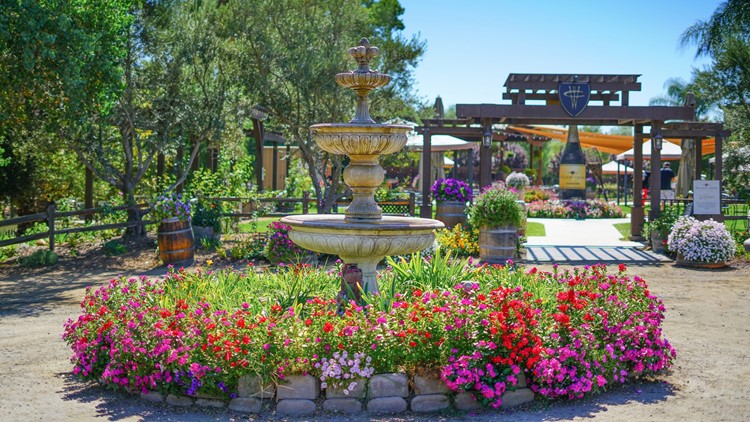TEMECULA, Calif. — With Earth Day just around the corner, Wilson Creek Winery promotes regenerative agriculture as the most sustainable choice for Southern California growers. The vineyard and online wine seller shares why their viticulture practices are setting them apart from other eco-friendly wineries in Southern California, and how they are leading the way for regenerative farming education.
When it comes to sustainability, Wilson Creek Winery is ahead of the pack. "Despite available certifications, there's no baseline standard for sustainability," says Greg Pennyroyal, Vineyard Manager at Wilson Creek Winery. "We focus on a scientific, holistic approach that includes both soil health and biodiversity. It's not just about taking care of our vines, but also what is happening on our land."
More than sustainable practices
This holistic approach is called regenerative farming, a carbon-capturing farming practice that takes sustainability to the next level. "Instead of just focusing on plant growth, regenerative farming focuses on rebuilding the health of the whole ecosystem," shared Pennyroyal. "This approach aims to reverse the declining trends in soil health, water quality, and biodiversity. By using regenerative farming practices, farmers can help heal the land and create a more sustainable future for agriculture."
With over 40 years of viticulture experience, Pennyroyal has implemented regenerative farming practices throughout the Wilson Creek vineyard since its inception, including sap analysis, biological soil respiration tests, and insect monitoring, to create a diversified and resilient ecosystem that yields top grape quality.
Wilson Creek grapes grown from regenerative practices consistently outperform standard grown vines. Even in excessive heat or drought, regenerative-grown crops can endure with minimal loss compared to non-regenerative blocks, which can lose up to 30% of the crop.
Each and every farming practice at the Wilson Creek winery is considered eco-friendly. From avoiding chemical fertilizers in favor of compost, to using green waste and cover crops, Wilson Creek truly lives a mission of green living. The end result? Wine that simply tastes better. "Our wine making is a labor of love, and the customers can taste that difference," Pennyroyal noted.
Pioneering regenerative farming education
Looking ahead, the winery remains committed to their green vision. "Because we are one of the largest wineries in the Temecula area, we pride ourselves with the responsibility of leading the development of viticultural techniques that are environmentally and ecologically regenerative," Pennyroyal said. "It's our goal to perfect these regenerative practices appropriate for our region, and widely disseminate the information in support of making Temecula not only a world-class wine-producing region, but a model of regenerative agriculture and business."
Putting intention into action, Wilson Creek winery recently started the Small Wine Growers Association to share the technology and application advances being made in the field with smaller growers, who account for just over a third of the wine production in Temecula Valley, but often don't have the resources of larger vineyards.
"When it comes down to it, sustainable practices are the right thing to do, and we're committed to practicing what we preach, and spreading the knowledge," Pennyroyal stated. "That's what we do here. We enhance lives. That includes our soil, watershed, communities, and our people."
WATCH RELATED: Local winery holding one-of-a-kind gnome hunt (April 2022).



